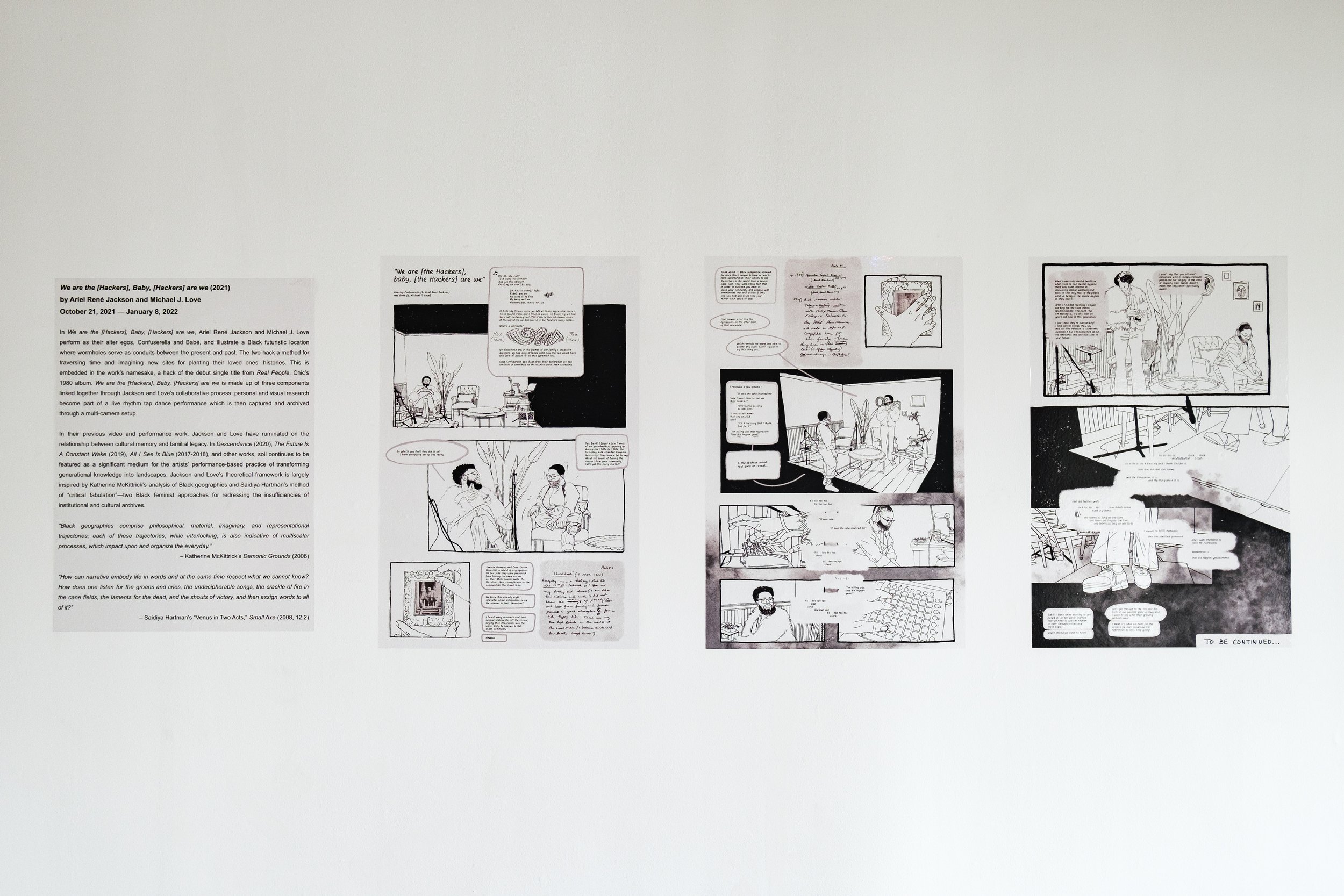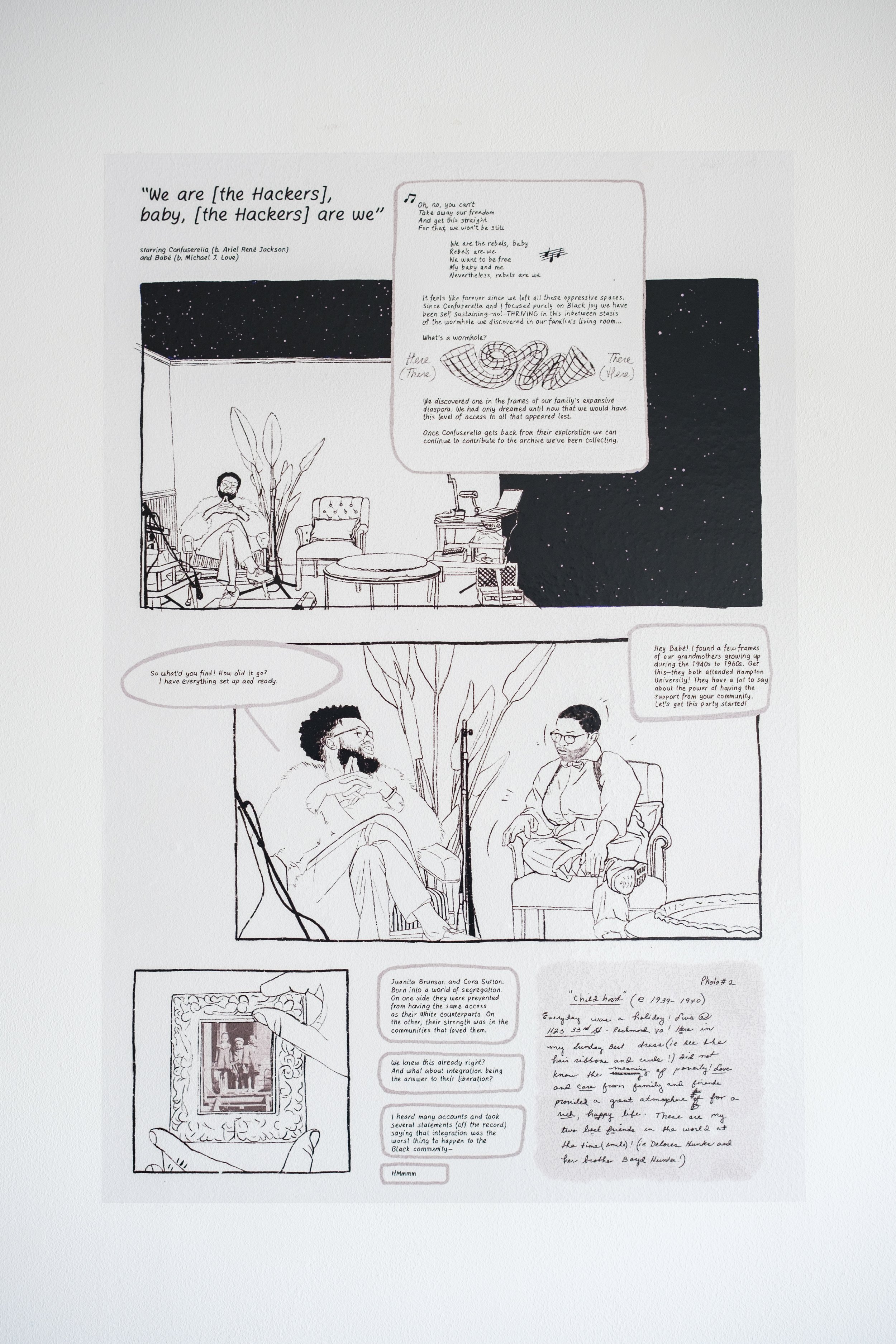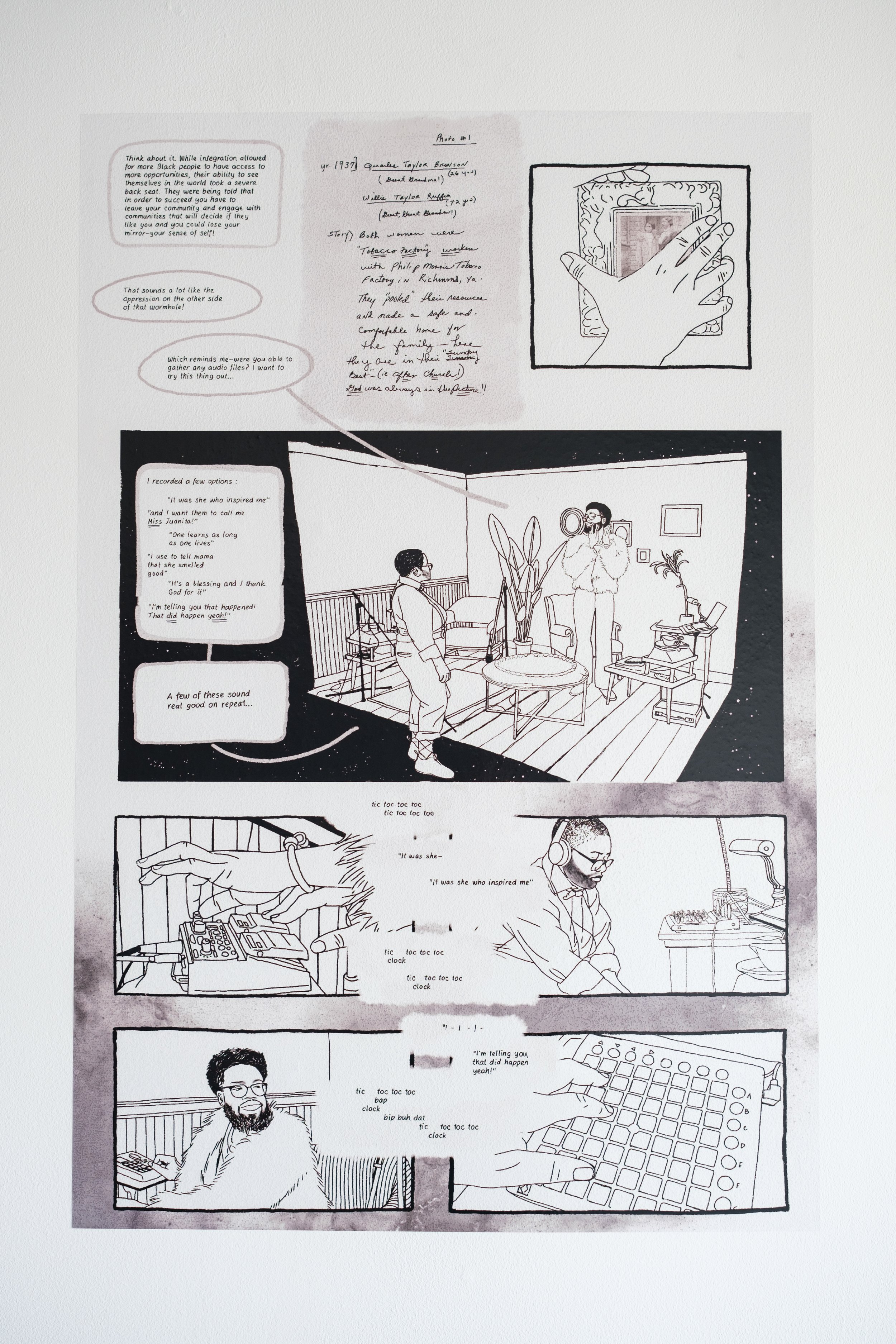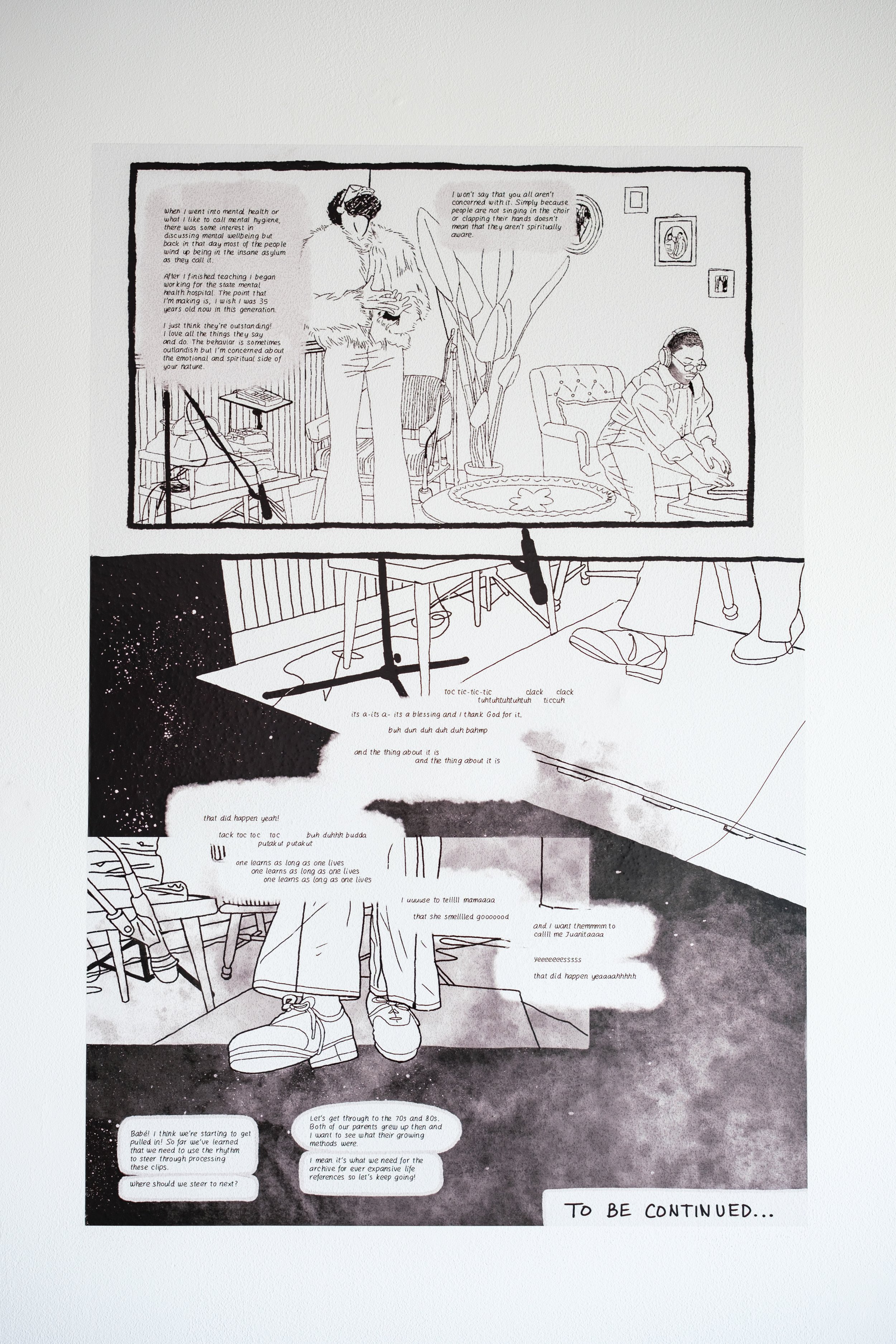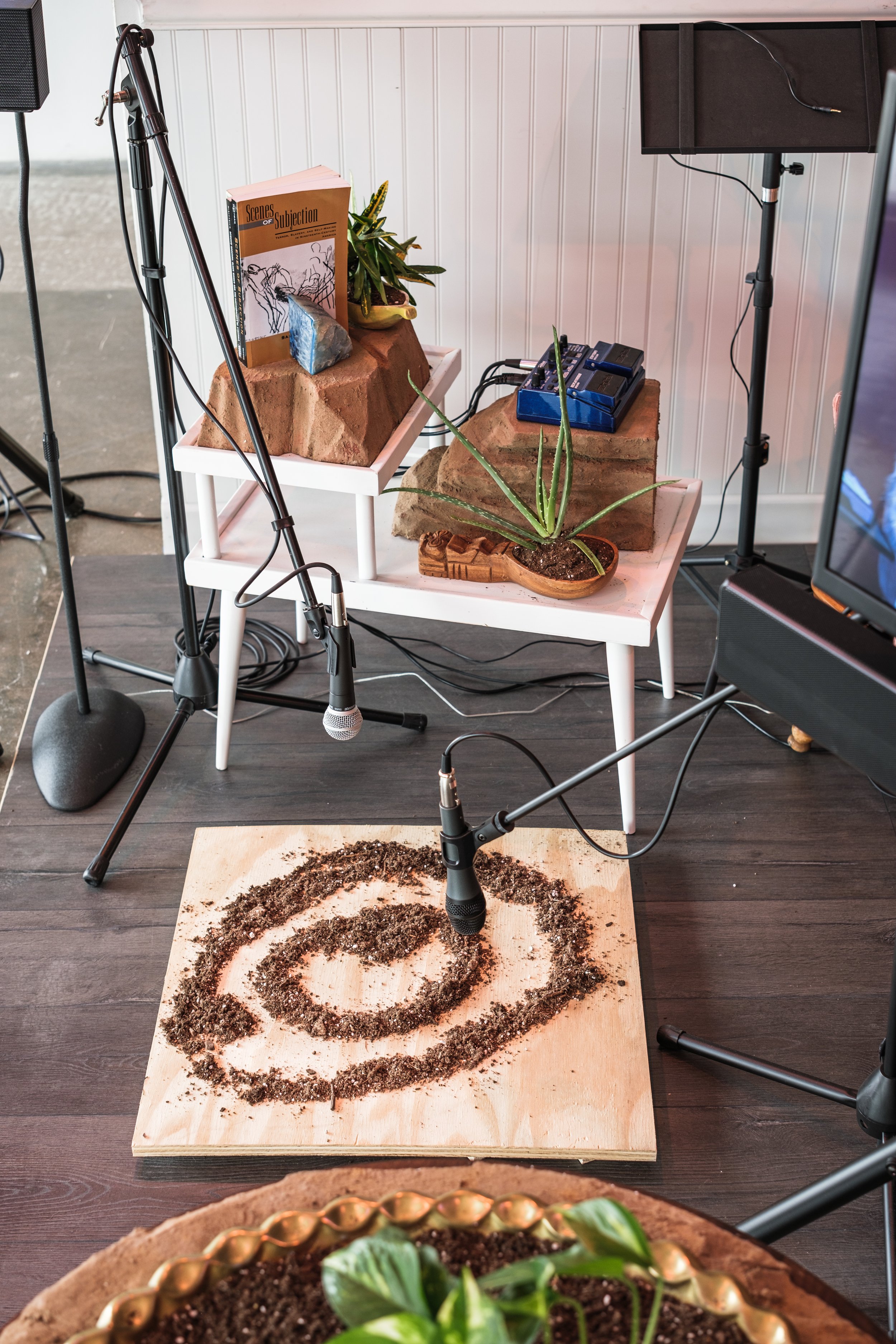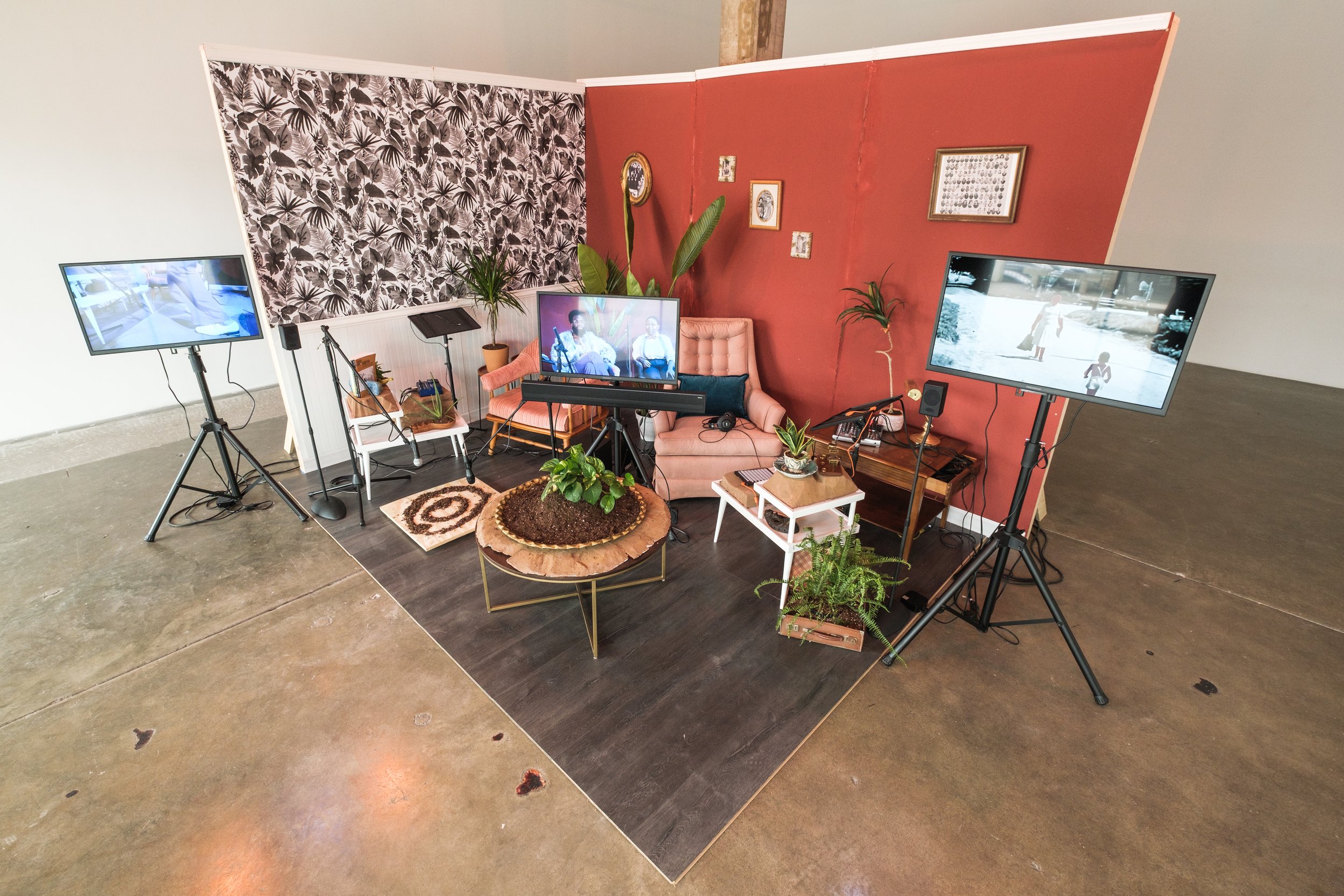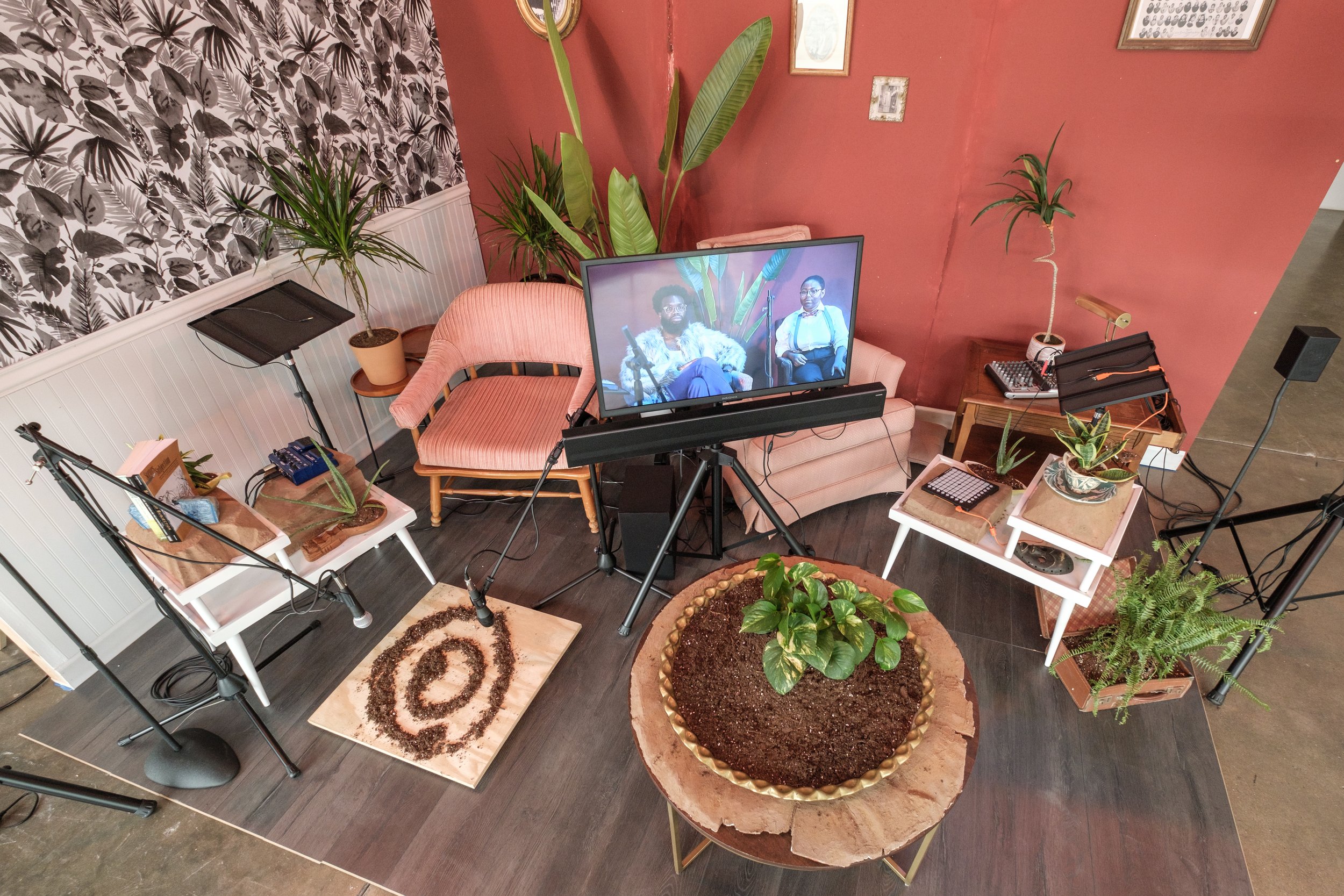Ariel René Jackson and Michael J. Love
Big Medium is pleased to present the fourth annual Tito's Prize exhibition featuring Ariel René Jackson and Michael J. Love. We are the [Hackers], Baby, [Hackers] are we ran from October 23, 2021 through January 8, 2022 by appointment only.
Jackson and Love were unanimously selected by a curatorial panel that includes Christopher Blay, Houston-based artist, writer, curator, and the Chief Curator of the Houston Museum of African American Culture; Lise Ragbir, Independent Curator and Writer; and Coka Treviño, Curator and Director of Programming at Big Medium.
In We are the [Hackers], Baby, [Hackers] are we, Ariel René Jackson and Michael J. Love perform as their alter egos, Confuserella and Babé, and illustrate a Black futuristic location where wormholes serve as conduits between the present and past. The two hack a method for traversing time and imagining new sites for planting their loved ones’ histories. This is embedded in the work’s namesake, a hack of the debut single title from Real People, Chic’s 1980 album. We are the [Hackers], Baby, [Hackers] are we is made up of three components linked together through Jackson and Love’s collaborative process: personal and visual research become part of a live rhythm tap dance performance which is then captured and archived through a multi-camera setup.
In their previous video and performance work, Jackson and Love have ruminated on the relationship between cultural memory and familial legacy. In Descendance (2020), The Future Is A Constant Wake (2019), All I See Is Blue (2017-2018), and other works, soil continues to be featured as a significant medium for the artists’ performance-based practice of transforming generational knowledge into landscapes. Jackson and Love’s theoretical framework is largely inspired by Katherine McKittrick’s analysis of Black geographies and Saidiya Hartman’s method of “critical fabulation”—two Black feminist approaches for redressing the insufficiencies of institutional and cultural archives.
“Black geographies comprise philosophical, material, imaginary, and representational trajectories; each of these trajectories, while interlocking, is also indicative of multiscalar processes, which impact upon and organize the everyday.”
– Katherine McKittrick’s Demonic Grounds (2006)
“How can narrative embody life in words and at the same time respect what we cannot know? How does one listen for the groans and cries, the undecipherable songs, the crackle of fire in the cane fields, the laments for the dead, and the shouts of victory, and then assign words to all of it?
– Saidiya Hartman’s "Venus in Two Acts,” Small Axe (2008, 12:2)





